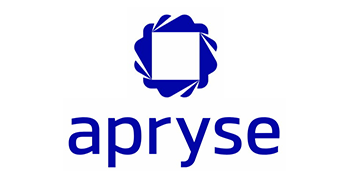
| Starting Price | Contact Sales |
|---|---|
| Free Version | No |
| Free Trial | No |
A content management system (CMS) helps you efficiently manage websites, blogs and online platforms. It lets you focus on creating exceptional content without the need for technical expertise. A CMS streamlines your content management and improves your online presence.
Our curated list includes the best value CMS platforms available, carefully selected based on extensive research and analysis. We understand the importance of a seamless content management process and have done the groundwork for you.

| Starting Price | Contact Sales |
|---|---|
| Free Version | No |
| Free Trial | No |
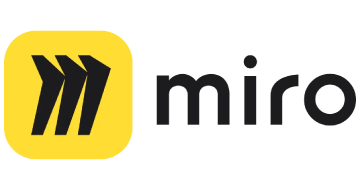
| Starting price | $8/user |
|---|---|
| Free trial | Free (up to 3 boards) |
| Free version | Yes |

| Starting price | $7/mo |
|---|---|
| Pricing model | Tiered |
| Free Trial | No |
| Free Version | Yes |

| Starting price | $149/mo |
|---|---|
| Pricing model | Per User |
| Free Trial | 14-day |
| Free Version | No |

| Starting price | $15/mo |
|---|---|
| Pricing model | Subscriber based |
| Free Trial | Yes |
| Free Version | No |
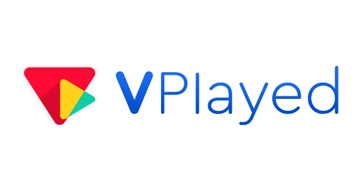
| Starting price | Contact for price |
|---|---|
| Pricing model | One-time License |
| Free Trial | No |
| Free Version | No |
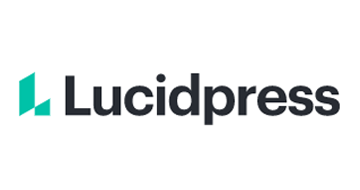
| Starting Price | $10/month |
|---|---|
| Pricing Model | Subscriber based, Quotation based |
| Free Trial | Yes |
| Free Version | Yes |
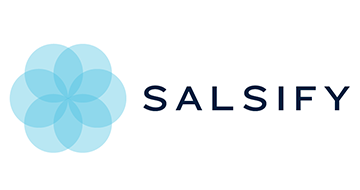
| Starting Price | $1,000/month |
|---|---|
| Pricing Model | Subscriber based |
| Free Trial | Yes |
| Free Version | No |
A content management system (CMS) is a software application that allows users to create, manage, and publish digital content without requiring extensive technical knowledge.
CMS platforms provide an intuitive user interface that allows users to easily create and edit content, organize it into a hierarchical structure, and publish it to websites, blogs, or other online platforms.
From text-based articles and blog posts to multimedia content, a CMS simplifies the content creation and management process, making it accessible to individuals and businesses of all sizes.
Understanding the different types of CMS platforms helps you choose the right solution for your specific needs:
Traditional CMS platforms combine content management and presentation layers in a single system. These platforms, like WordPress and Joomla, offer user-friendly interfaces and are ideal for businesses that need quick setup and straightforward content management.
Headless CMS separates content management from presentation, allowing developers to use any frontend technology while managing content through APIs. This approach provides flexibility for businesses delivering content across multiple channels and platforms.
Cloud-hosted CMS solutions eliminate the need for server management and maintenance. These platforms offer automatic updates, scalability, and accessibility from anywhere with an internet connection.
Open-source CMS platforms provide access to source code for customization, while proprietary systems offer dedicated support and specialized features but with limited customization options.
Content management systems (CMS) offer a range of features and benefits that simplify content creation, organization, and publishing, making them an indispensable tool for individuals and businesses.
With CMS platforms, you can easily create and edit content using intuitive WYSIWYG editors, without the need for programming skills. You can effortlessly format text, add images, and embed media to bring your content to life.
Content organization features on CMS platforms allow you to arrange your content in a hierarchical structure that allows for easy categorization, navigation, and search. With options like folders, tags, and custom taxonomies, you can create a logical and efficient system for organizing your content.
Publishing and scheduling features in CMS platforms give you the flexibility to plan and automate content publishing. You can preview your content before publishing and schedule it in advance to ensure timely and consistent publication of your articles, blog posts, or other content.
CMS platforms also offer built-in SEO features to optimize your content for search engines. Customize meta tags, URLs, and alt tags to improve your content’s visibility and search engine rankings. In addition, responsive design features ensure that your content looks good on all devices, improving the user experience and catering to the growing number of mobile users.
Security should be a top priority when selecting a content management system. Modern CMS platforms implement multiple layers of security:
Choose CMS platforms that provide frequent security patches and updates. Open-source platforms like WordPress benefit from community-driven security improvements, while proprietary systems offer dedicated security teams.
Implement robust user role management to control who can access, edit, and publish content. Multi-factor authentication adds an extra layer of protection against unauthorized access.
Ensure your CMS offers automated backup solutions and disaster recovery options. Cloud-based systems typically provide built-in backup functionality.
Modern CMS platforms must support SSL certificates to encrypt data transmission and improve search engine rankings.
| CMS Platform | Best For | Ease of Use | Customization | Starting Price | Market Share |
|---|---|---|---|---|---|
| WordPress | Blogs, business websites, e-commerce | Easy | High | Free (hosting required) | 62.5% |
| Shopify | E-commerce stores | Easy | Medium | $29/month | 4.4% |
| Wix | Small business websites | Very Easy | Medium | $16/month | 2.6% |
| Squarespace | Creative portfolios, small business | Easy | Medium | $16/month | 1.8% |
| Joomla | Complex websites, multilingual sites | Moderate | High | Free (hosting required) | 2.4% |
| Drupal | Enterprise websites, complex applications | Difficult | Very High | Free (hosting required) | 1.6% |
Understanding different pricing structures helps you budget effectively for your content management needs:
| Pricing Model | Description | Typical Range | Best For |
|---|---|---|---|
| Free/Open Source | No license fees, hosting costs separate | $5-50/month (hosting) | Budget-conscious users |
| Subscription-Based | Monthly/annual fees including hosting | $10-300/month | Businesses wanting full support |
| One-Time License | Upfront purchase with optional support | $100-5,000+ | Enterprise with IT resources |
| Freemium | Basic free tier with paid upgrades | Free-$100/month | Growing businesses |
Selecting the perfect CMS requires evaluating several key factors:
Consider how much content you’ll manage and how complex your publishing workflow needs to be. Enterprise organizations typically need more robust user management and approval workflows.
Evaluate your team’s technical skills. User-friendly platforms like website builder software may be more suitable for non-technical teams, while developer-friendly options offer more customization.
Choose a CMS that can grow with your business. Consider factors like traffic handling, storage requirements, and the ability to add new features as your needs evolve.
Modern businesses need CMS platforms that integrate seamlessly with other tools. Consider how well your chosen CMS works with your existing customer service software, communication and collaboration tools, and customer engagement platforms.
Factor in both initial costs and ongoing expenses, including hosting, maintenance, security, and potential customization costs.
Migrating to a new CMS requires careful planning to avoid data loss and maintain search engine rankings:
Create a comprehensive inventory of your existing content, including pages, posts, media files, and user accounts. Document your current site structure and functionality requirements.
Most modern CMS platforms offer migration tools or plugins to transfer content from other systems. However, custom content types and complex formatting may require manual adjustment.
Maintain your search engine rankings by preserving URL structures or implementing proper redirects. Document your current SEO elements, including meta descriptions, title tags, and internal linking structure.
Set up a staging environment to test the migrated content before going live. This allows you to identify and resolve issues without affecting your live website.
Search engine optimization capabilities are crucial for online visibility:
Modern CMS platforms include features like automatic sitemap generation, customizable meta tags, and clean URL structures. These tools help improve your content’s discoverability without requiring technical expertise.
With mobile-first indexing, responsive design capabilities are essential. Choose a CMS that automatically optimizes content for mobile devices.
Fast-loading websites rank better in search results. Look for CMS platforms that offer built-in caching, image optimization, and content delivery network (CDN) integration.
Integration with analytics tools helps you understand how your content performs and identify optimization opportunities. Many CMS platforms offer built-in analytics or seamless integration with popular tracking tools.
Different business sizes have varying CMS requirements:
Small businesses typically benefit from user-friendly platforms with built-in templates and basic customization options. Cost-effective solutions that include hosting and support are often preferred.
Large organizations need robust security features, advanced user management, workflow automation, and scalability. Enterprise CMS platforms often include advanced analytics, multi-site management, and extensive API capabilities.
At SaasGenius, we use a comprehensive ranking methodology to determine the best content management systems (CMS). Our evaluation takes into account factors such as ease of use, content creation and editing features, organizational features, publishing options, SEO-friendliness, extensibility, customer support, and value for money.
Through careful research and analysis, we provide unbiased recommendations to help you find the ideal CMS that simplifies content management, caters to your specific needs, and enables seamless digital content creation, organization, and publishing.
Use our rankings to point you in the direction of the CMS platform that will maximize your content management efficiency. For businesses looking to expand their digital toolkit, consider exploring our comprehensive guides to content and design software and other essential business tools.